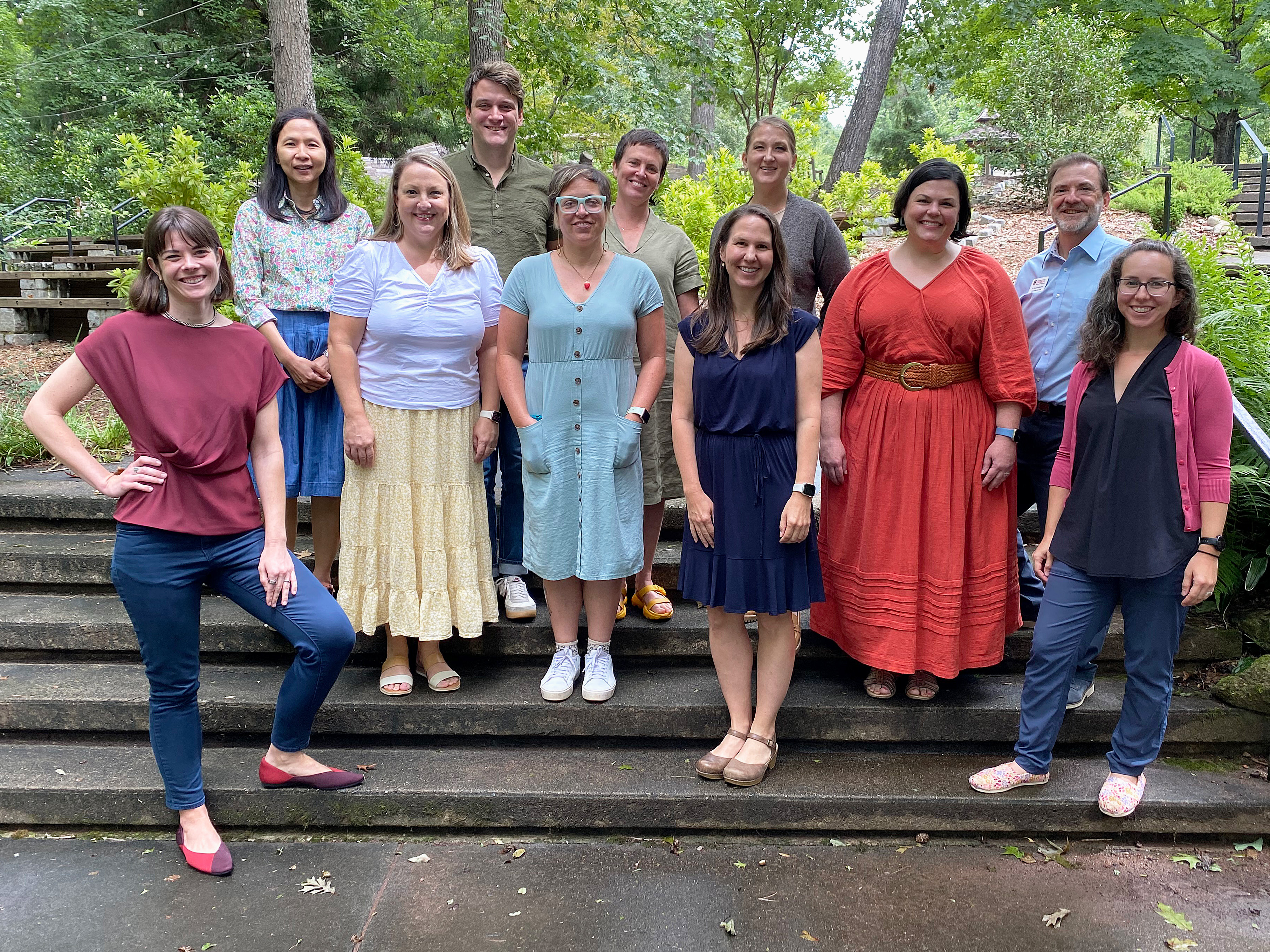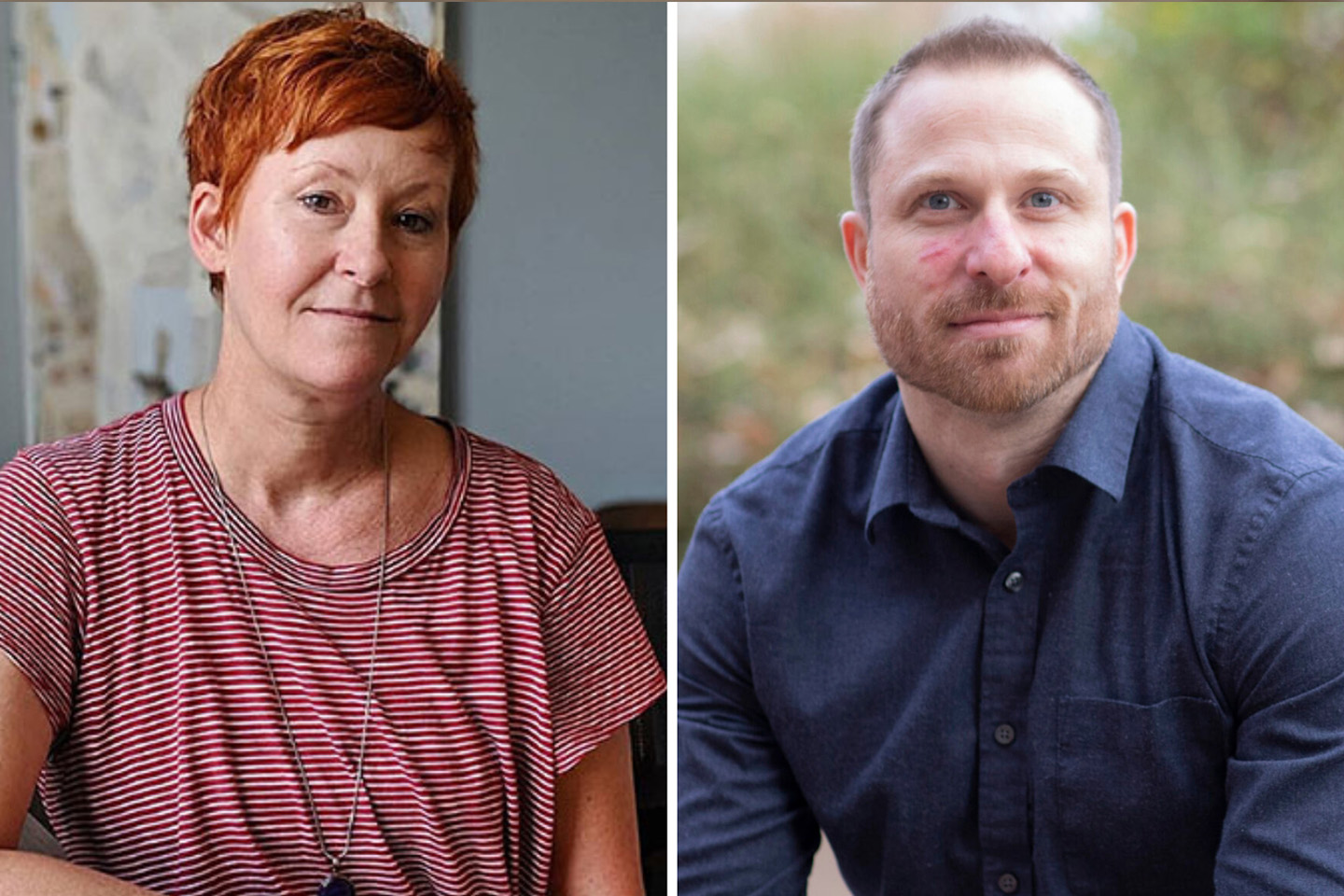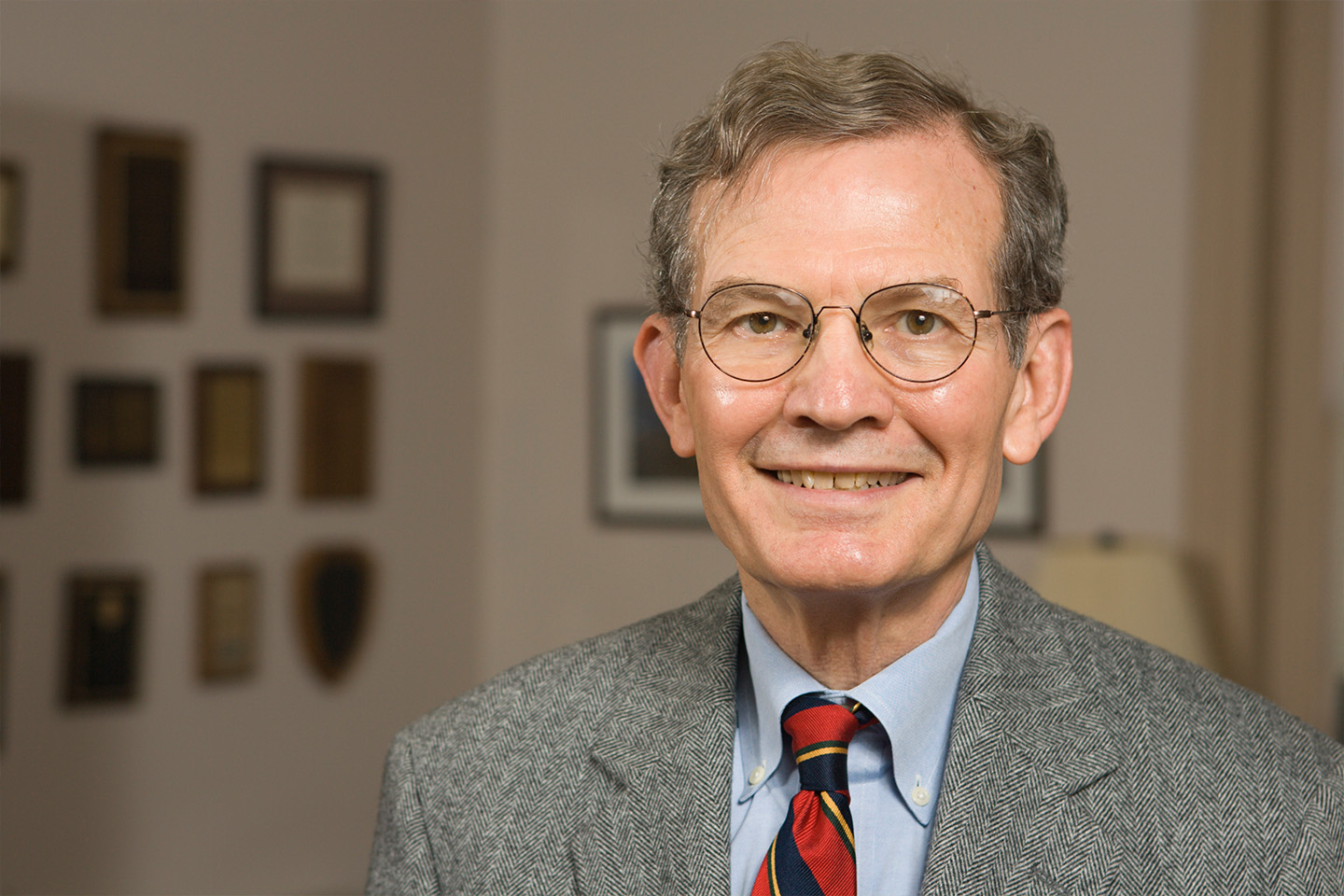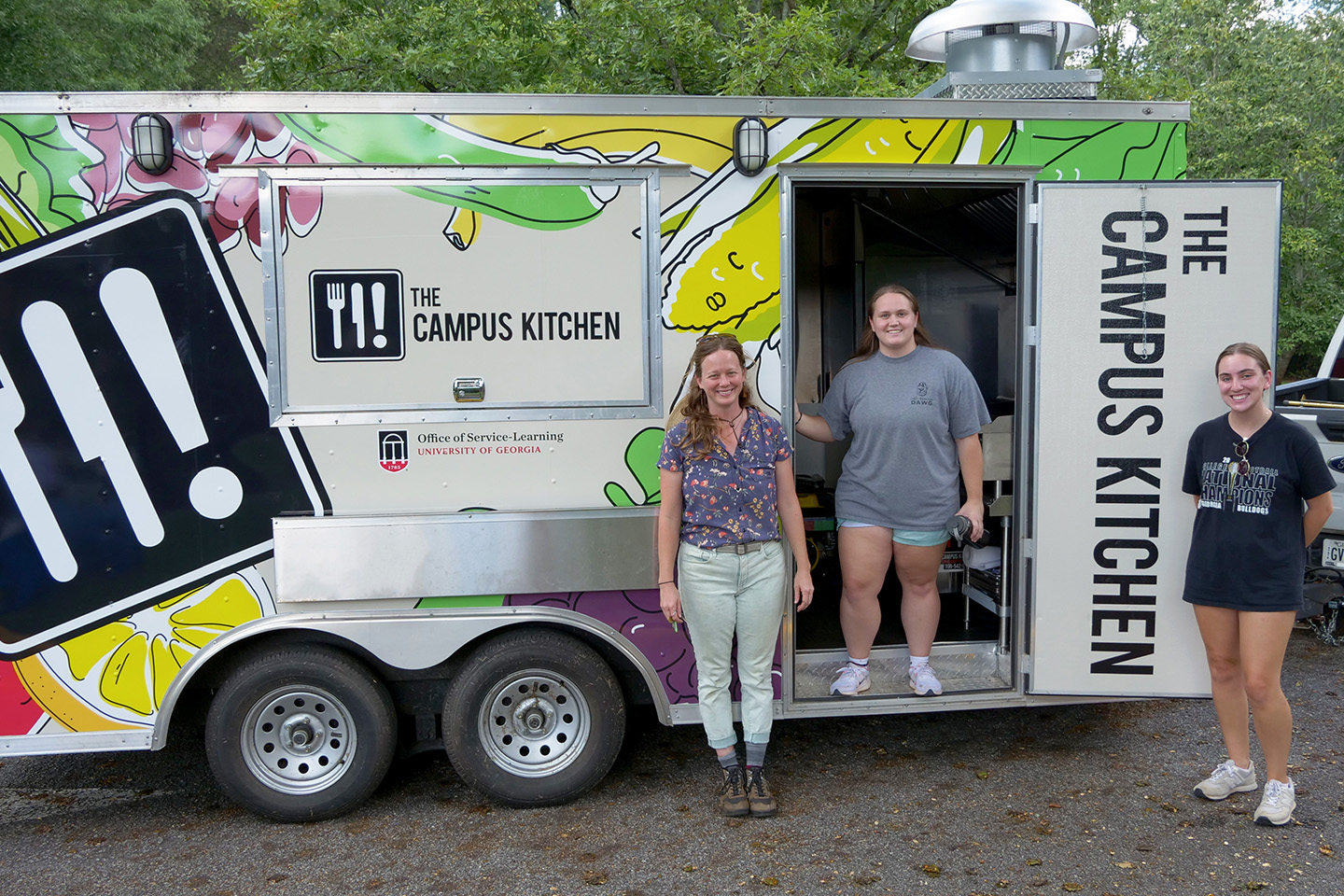The Office of Service-Learning has selected 10 University of Georgia faculty members for participation in its year-long Service-Learning Fellows program. This program provides an opportunity for faculty members from a broad range of disciplines to integrate academic service-learning into their professional practice.
Fellows meet regularly throughout the academic year and receive an award of up to $2,500 to develop or implement a proposed service-learning project. Academic service-learning—one way for students to fulfill UGA’s experiential learning graduation requirement—integrates organized service activities that meet community-identified needs into academic courses to enhance understanding of academic content, teach civic responsibility, and benefit the community.
Nearly 170 faculty from 16 of UGA’s schools and colleges, Public Service and Outreach units, and the UGA-AU medical partnership have participated in the program since it was established in 2006. Participants create diverse service-learning projects that pair students with partners locally, across the state, or throughout the world to address community issues such as health access, youth development, food insecurity, economic development, and literacy.
“The Service-Learning Fellows are learning and implementing effective, high-impact teaching strategies that improve student learning through partnerships meeting community needs,” said Paul Matthews, associate director of the Office of Service-Learning.
The 2023-2024 Service-Learning Fellows, their respective academic fields, and proposed projects are:
Rebecca Abney, Assistant Professor, Warnell School of Forestry & Natural Resources
Abney plans to add a service-learning site assessment to her split-level course, “COFA 5301/7301 Community and Urban Soils and Site Development.” The course’s semester-long assessment project will engage students in providing soil assessments to members of the community who may not have access to such services. Abney is investigating partners such as the Athens Land Trust, UGArden, or local schools for this project.
Kelly Carruthers, Academic Professional Associate and Undergraduate Coordinator, Department of Entomology, College of Agricultural and Environmental Sciences
Carruthers is focused on updating the “ENTO 4300S: Insect Outreach” course. Students will work with community partners on school gardens projects to set up and maintain school gardens and be involved in preparing teaching materials for K-12 students in academic classes or through after-school programs.
Allie Cox, Clinical Assistant Professor, Department of Lifelong Education, Administration and Policy, Mary Frances Early College of Education
Cox plans to develop service-learning components for “LLOD 8440: Organization Coaching Practicum,” taught on the UGA Gwinnett campus. As part of the Graduate Certificate in Organization Coaching, the course’s new service-learning components will allow students to expand their learning beyond their existing networks and gain real-world experience engaging with and serving organizations in Gwinnett County.
Jeremy Davis, Assistant Professor, Department of Philosophy, Franklin College of Arts and Sciences
Davis is developing a new philosophy service-learning course on criminal justice ethics using the “inside-out” model. This course will bring UGA students and local incarcerated community members together to discuss issues surrounding punishment, deterrence, prisons, law enforcement and policing, the court system, and other related topics in a hybrid classroom, which will allow students to better understand and gain new perspectives on the criminal justice system.
Holly Gallagher, Lecturer, Division of Biological Sciences, Franklin College of Arts and Sciences
Gallagher plans to convert “BIOL 4200W: Science and Health Writing” into a service-learning course. The service-learning elements may entail students developing “science cafes” to engage members of the community in conversations about science or health topics, developing informational materials on health topics for community partners, or collaborating with a local science and health publication to address community needs or topics of interest.
Diana Graizbord, Assistant Professor, Department of Sociology and Latin American and Caribbean Studies Institute, Franklin College of Arts and Sciences
Graizbord wants to extend her work in her “SOCI/LACS 4055/6055: Digital Storytelling for Social Policy” course and develop a new and sustainable partnership with a local organization or government agency. Through this partnership, Graizbord’s students will address community-based needs through qualitative sociological research, and students will learn how sociology can serve the public good.
Jamie Hogan, Clinical Assistant Professor, Department of Language and Literacy Education, Mary Frances Early College of Education
Hogan intends to redesign “LLED 3400/7400: Current Issues in Secondary English Education” to support literacy practicum experiences in partner secondary schools. Through this expanded course, students will focus on secondary school partners’ community literacy efforts and gain real-time experiences prior to entering the classroom as teachers.
Dax Ovid, Assistant Professor, Department of Physiology and Pharmacology, College of Veterinary Medicine
Ovid plans to incorporate social justice in science as a service-learning and science outreach element in “VPHY 7770E: Science Teaching for Scientists,” which is a pedagogy course for graduate students in STEM fields. In collaboration with Dr. Tati Russo-Tait of UGA and Dr. Brie Tripp of the University of California-Davis, this course redesign involves curriculum development in partnership with community leaders based on real-world challenges. Students in the course will build connections with local organizations to consider the impact of their research on society and consider ways to translate scholarship in science to serve the community and address ongoing social inequities.
Sayamon Singto, Senior Lecturer, Division of Academic Enhancement
Singto intends to add service-learning to the “UNIV 1202: Becoming Active Learners” course, extending it from a 1-credit to a 2-credit elective. In this course, students will collaborate to develop digital resources with peer advice and tips on becoming successful active learners. Singto hopes that, because this content is written for students by students, it will be widely shared as UGA students prepare for active learning courses, and students will critically reflect on the content they develop.
Kerry Steinberg, Lecturer, Department of Romance Languages, Franklin College of Arts and Sciences
Steinberg is planning to revise the Spanish service-learning practicum (SPAN 4090S) to add a partnership with local non-profit Casa de Amistad to develop an online ESOL conversation program. English language learners will practice their English skills with Steinberg’s students, who will, in turn, be able to practice their Spanish with members of the community, while learning more deeply about the local Spanish-speaking community’s strengths and challenges.
The Office of Service-Learning is jointly supported by the Office of the Vice President for Instruction and the Office of the Vice President for Public Service and Outreach. More information on the Service-Learning Fellows Program is available at the Office of Service-Learning’s website.
##




